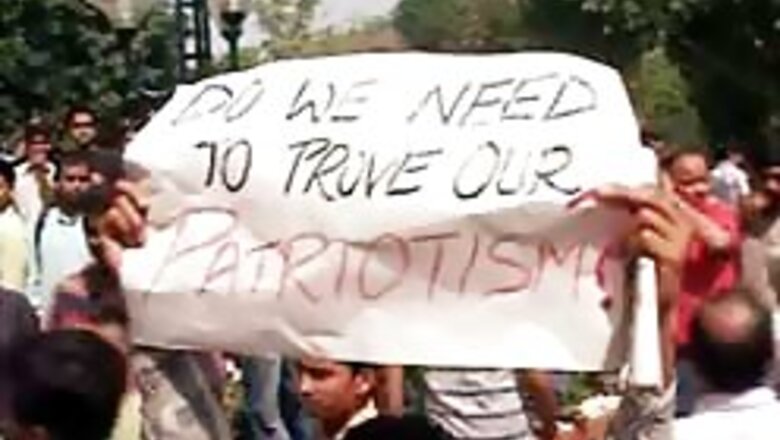
views
(....Time has come to make sane majority voice powerful and loud enough to frighten tiny minority... Editor-in-Chief IBN-7, Ashutosh, wrote this blog on September 28 after the Jamia encounter. Following is a response from Aalam Anwar, Professor at Jamia Millia Islamia)
I am sad to see a piece by my friend, Ashutosh, on ‘Jamia Encounter’. Sad more, because when a person is a ‘public person’, his opinion matters and influences other minds.
Therefore I have to reply to his provocative journalistic piece. Certainly we have grown up together and it is also true that despite our differences in understanding the social phenomenon, we remain friend. The conflict of approach has not marred our close relationship. My response to your piece will not be based merely on what you have stated in your blog but also informal discussion that you had with me in the context of Jamia episode.
What you wrote smacks a kind of public sobriety posture that does not allow you to retain the same content, structure of languages, metaphor and rhetoric in the public domain that you articulated internally. A part of the problem of your piece lies in this dualism.
I share your anguish, frustration and helplessness that result from our failure to fight back the menace of terrorism. It is sad that you see our reaction to Jamia episode as ‘Muslim’ and not as ‘citizen’ and very quickly put me along with M J Akbar in the company of Maududi and Osama Bin Laden.
This is nothing but a worst kind of generalisation that does not hold any ground. I would not go as far as putting you and Togadia in the same box because I recognise the subtle differences between the two even while both share the broad spectrum of same discourse.
I do not claim myself as liberal Muslim, it is others that choose this label to brand a person like me. I was born in a Muslim family and hence having a Muslim identity. Beyond this there is nothing.
Ashu knows this well. Interestingly he also retains the right to decide when I act as Muslim and when I act as citizen. Since he happens to born with Hindu identity he never bothered to know whether his action amounts to ‘Hindu action’ or ‘Indian’ or ‘citizen’ action. Hindu, India and citizen are all synonymous for him. After all, religious minority in any society has to shoulder the burden of proving loyalty to the ‘majoritarian’ nation. It is this problematic that forces Ashu to consider Jamia Millia Islamia as ‘Muslim university’ and then classified the reaction of a group of Jamia teachers as ‘Muslim’, despite the fact a good number of teachers at JMI has ‘Hindu Identity’ and was at the forefront in articulating the response of a group of Jamia teachers.
Should Ashu then consider Banaras Hindu University as primarily a ‘Hindu University’ and would classify the response of a group of BHU teachers as ‘Hindu reaction’ if something similar happens in that university or its neighbourhood? Probably not.
Ashu has a priori understanding of ‘Indian citizen’ and anybody failing to adhere to his understanding of ‘citizen’ can simply be castigated as ‘community centered’. If he means by citizen as ‘law abiding citizen’ that in essence means internalizing the discourse of state, then I beg to differ. I think he was writing from this perspective.
He first identifies the root of global terrorism in the ‘Muslim mindset’, then felt very uncomfortable that there is hardly any Muslim including the liberal section within the community that is openly condemning this menace of terrorism or openly coming out to fight out this mayhem.
He further felt deeply hurt when he saw the ‘alternative version’ to ‘Jamia encounter’ and demand for impartial judicial inquiry and considered this as nothing but a defense of community.
PAGE_BREAK
In other words he came to the conclusion that even the Muslim liberal intelligentsia is not acting in the ‘national interest’.
He expected the community to remain in silent over the incident and endorse the police action as a ‘good citizen’. Questioning state action in this context is a bad strategy, according to him, that will help terrorist to consolidate his position. Little he realized that he has moved to far right fascist position while taking this position. After all, the domain of civil liberty becomes the first causality at the hand of state in the context of fighting terrorism.
It is for this reason that I totally endorse Prof Mushirul Hasan’s bold, courageous and imaginative position of providing a legal aid to those arrested students of JMI till they are proven guilty in the court of law, which my friend, Ashu, sees as nothing but a ‘politics of community’ to achieve a higher political gain.
Had it been not for the initiative of Prof. Musirul Hasan and a group of Jamia teachers, the field would been remained open for the fundamentalist forces within community to give a communal and radical colour to the entire episode. Keeping a balance between civil liberty and tough law that is required to tackle terrorism is indeed a difficult terrain for any democratic state to maintain.
However this does not mean that one should accept the state actions/version as matter of truth. The job of media is to promote multiple points of view and should avoid stepping into the shoes of policing. They must also avoid the role of “serving the national interest”, because it is the sectarian interest that is often served in the name of national interest.
Ashu proposes a simple, sharp and commonsensical question: A police encounter is encounter (fake, alleged, true something that happens everyday basis), hence why Muslims rose up to defend when a person bearing a Muslim name is killed and not vica-versa.
In other words why killing of Ateef Amin evokes a response from Muslim community and why killing of keval Nandu does not evoke a similar response from Jamia or the community that he belongs or from any group? Though he did not pose the question in these words but this is what he intended to ask.
First, what makes him to classify the reaction of an individual/section/group living in that area first as ‘Muslim’ and then ‘community’ reaction? Were these individuals/groups representative (in any sense---legal or social) of the Muslim community living in that area or outside? Is Shahi Imam a representative of Muslim community? Politics of representation of community (that is mostly self-claimed) is one thing, something which is carried out in every religious community, but its dejure recognition is another thing.
PAGE_BREAK
If the state for its own reasons considers certain individuals/ organizations as representative of community that does not make these privileged individuals/organizations as legitimate representative in the eyes of masses. Further, did any Muslim take the position that Jamia encounter was deliberately aimed at defaming/maligning Islam?
In fact a majority of Muslim feels sad that a tiny minority within the community with their violent activities is bringing a bad name to Islam. The problem not only lies in representing the ‘citizen individual’ belonging to minority religious community with, first and foremost, his/her religious identity but also making Muslim and Islam synonymous. The assumption underlying the question, that sees response of individual with Muslim identity in a collective sense, is deeply problematic. This question follows from an understanding that Muslim community is primarily a monolithic community, despite its diverse reality.
His metaphor of ‘little boy syndrome’ follows from the same understanding; however metaphor does not capture the reaction of the community. The community, out of frustration, is not saying that ‘yes we did that, what will you do’, on the contrary the community is suffering from ‘denial syndrome’.
Ashu proposes a simple, sharp and commonsensical question: A police encounter is encounter (fake, alleged, true something that happens everyday basis), hence why Muslims rose up to defend when a person bearing a Muslim name is killed and not vica-versa. In other words why killing of Ateef Amin evokes a response from Muslim community and why killing of keval Nandu does not evoke a similar response from Jamia or the community that he belongs or from any group?
Though he did not pose the question in these words but this is what he intended to ask. First, what makes him to classify the reaction of an individual/section/group living in that area first as ‘Muslim’ and then ‘community’ reaction? Were these individuals/groups representative (in any sense---legal or social) of the Muslim community living in that area or outside? Is Shahi Imam a representative of Muslim community?
Politics of representation of community (that is mostly self-claimed) is one thing, something which is carried out in every religious community, but its dejure recognition is another thing. If the state for its own reasons considers certain individuals/ organizations as representative of community that does not make these privileged individuals/organizations as legitimate representative in the eyes of masses. Further, did any Muslim take the position that Jamia encounter was deliberately aimed at defaming/maligning Islam?
In fact a majority of Muslim feels sad that a tiny minority within the community with their violent activities is bringing a bad name to Islam. The problem not only lies in representing the ‘citizen individual’ belonging to minority religious community with, first and foremost, his/her religious identity but also making Muslim and Islam synonymous. The assumption underlying the question, that sees response of individual with Muslim identity in a collective sense, is deeply problematic.
This question follows from an understanding that Muslim community is primarily a monolithic community, despite its diverse reality. His metaphor of ‘little boy syndrome’ follows from the same understanding; however metaphor does not capture the reaction of the community. The community, out of frustration, is not saying that ‘yes we did that, what will you do’, on the contrary the community is suffering from ‘denial syndrome’.
Second, in the history of police encounter there are many Muslim criminals/terrorists that have been killed, how many times Muslim as community defended such criminals/terrorists? Today Sahabuddin, an RJD MP and a notorious criminal, is behind bar, do you think that Muslim as community stands by him if he was to be killed in encounter? Like him there are many criminals with Hindu identity that have won the elections. No community including Muslim community will defend the killing of person with credible, proven criminal/terrorist record. Problem arises when circumstantial and other evidences does not support the police’s claim that person - whether Atif Ameen or else---- killed was terrorist or die hard criminal. Further, police record in this matter does not evoke any confidence within the community. Indiscriminate arrest of good number of Muslims under TADA has taken place but a majority was released in the absence of evidence. Equally important here is to note about the ‘communal profiling’ of arrested/killed Muslims (whether criminals/terrorists) by state, media and other dominant agencies in the society, which is so badly missing in the case of non- Muslim criminals/terrorists. What makes these dominant agencies to escape the communal profiling of Bajrang Dal activists or VHP activists in case of their arrest? Is it because they happen to belong to majority community of the nation, operating in the name of ‘defending Hindu national tradition’ or their action can not be demonstrated as coming from the reading of particular Hindu text? The difference lies in the way the case of those arrested/killed are portrayed/ represented by the dominant agencies of state system. Imagine electronic media caption: Azamgarh or Attankgarh!!!! One can understand the political compulsion of Mulayan Singh Yadav and Lalu Prasad Yadav (given the fact that Muslims constitute their support base) to demand the lifting of ban on SIMI, but what about central government’s own commission that found no basis for renewing the ban on SIMI and government had to approach the Supreme Court for the extension of ban?
A history of communal riots, institutionalized pogrom, lack of access to developmental process, ghettoized pattern of life along with the increasing global demonization of Islam and its traditions and in national context where Muslim has emerged as ‘the other’ in ‘national collective mind’---- all these process have seriously jolted the confidence of the Muslim community in the prevailing state security structure, making them more insecure, vulnerable, hyper sensitive about the identity and is caught between the vicious cycle of defensive outlook.
PAGE_BREAK
This is not to advance the thesis of conspiracy theory that a majority within the community believes but to sensitize you about their location in the ‘national geographical imagery’ and a very specific complex process that govern the relationship between the majoritarian nation state and religious minority. This is important to understand the ‘community reaction’, if there is any, when community is targeted, vilified, demonized through the acts of single individual/group/ organizations.
I do agree with you there is a far less degree of liberal spaces within the Muslim community in comparison to other religious community or traditions. There are historical reasons that I am not going to deliberate upon here. In the Indian context while state helped to expand the liberal spaces within the majoritarian Hindu religious tradition, it dithered from imposing any reformist agenda on the Muslim community for various reasons. From below the conservative-fundamentalist sections of the community did not allow any liberal reformist agenda to emerge. As a result the community has become sandwiched. In this context it is totally absurd to see the downfall of Arif Mohammad Khan and rise of Syed Shabuddin in terms of defeat of liberal forces/values and success of conservative-fundamentalist forces/ values among the Indian Muslims as you would like to maintain. Arif Mohammad khan rose to national-political level due to Congress and also lost that position due to Congress politics; his values did not have any role to play in this political journey. He paraded his liberalism in post -Shah Bano controversy to demonstrate the communal-fundamentalist character of Congress. His liberal values did not prevent him from traveling from Jan Morcha to BJP. Today both Arif Mohammad Khan and Syed Shabuddin are in political hibernation irrespective of their value systems. Shabuddin’s Insaff Party remained a non- starter. In fact the Indian political system is flexible enough to accommodate all kind of political tendencies and value systems. The juxtaposition of individuals in political arena in terms of conflict of values hardly helps in understanding the trends within the community or society at large. In fact liberalism and liberal values is constantly retreating in the Indian society since the rise of Hindutuva. And as Hindutava began to acquire a shape of normal discourse the retreat of liberalism is not even registered in the consciousness of majority community (unless something unprecedented event like pogrom in Gujrat happens) and gradually the focus of debate on liberalism shifts to the terrain of minority religious community, particularly the Muslims. Such debates often emerged as the marker of differentiation for the members of majority community.
He shares the popular perception that Muslims is not condemning this phenomenon, neither fighting the fundamentalist forces within the community, while it is the liberal Hindu including himself that is fighting the Hindu communalism. Like the other segment of population Muslims are also a member of different political and civil society organizations. Their condemnations of terrorist incidents also means that these organizations also echoing the voices of segments of Muslims. Why Muslim as community or organization is required to condemn such incident, I do not understand? Such expectations and reasoning share a widespread perception that see the connection between terrorism/violence and community or at least the crime is perpetrated in the name of community symbols. Hence it is the moral responsibility of the community, particularly its liberal segments, to equivocally condemn such incident and still clear the name of its religious tradition in whose name such incidents are perpetrated. In the present context the global dimension of violence connected with a section of Muslim community is forcing many including Ashu to ask a question ‘What is wrong with Islam and Muslim community’?
This question would have not assumed its significance had this being raised in the age of Crusuades or in an age where religious sanction of violence was legitimate discourse. Today we live in the increasingly secularized world, hence violence in the name of religion becomes problematic, and otherwise violence committed in the name of nation or any secular symbols is fine. Violence per se is not problematic but its source of justification is problematic!
Ashu sees the solution of this syndrome in making religion a private and personal matter. All major religions of the world have been brought to this domain except Islam that retains the claim of forming the government.
This is a modernist myth that religion is a private affair and has nothing to do with the public domain. Read Casonova’s ‘Public religion in Modern world’ in which he propounded the theory of de-privitization. Religions all over the world are refusing to become privatized, in some cases they have become overtly political, in other cases they shifted their public location: from political to social.
PAGE_BREAK
Further the occurrence and non-occurrence of violence does not correspond to the principle of fusion of religion and politics (as found mostly in Muslim societies) and the principle separation of religion and politics (as to be found mostly in Western societies) respectively.
The modern West including the ‘secular America’, that claims to banish religion to the private sphere, has committed more genocide, holocaust, attacks other nations and brutalized a sea of humanity in the name of progress and democracy. The connection between modernity and violence is much sharp than the connection between tradition and violence.
The clerical Iran during more than 25 years of its rule has no history of attacking other nations or dehumanising the religious minority. Gandhi mixed up religion and politics but remained the apostle of peace and non- violence. Each religion has specific values and tradition and therefore the English term ‘religion’ is incapable of comprehending the differential dimensions of non- Christian religions.
For this reason there will be no Maudidi or Syed Qutub in non-Islamic religious traditions. But why is this a problem, I can not understand? Political Islam is not terrorism as you would like to maintain. Though I do not share the vision of Political Islam but in many Muslim countries it champions the democratic aspiration of Muslim masses against the brutal, authoritarian secular military regime. The representation of what is called ‘Jihadi Islam’, a fringe ideological trend within the otherwise a vast majority of Muslims continue to practice various forms of political and Muslim community, as ‘the face of Islam’ thrives in media and state establishment, social Islam.
Bernard Lewis, the late celebrated rightwing American historian, ask the same question and found the answer of current spate of violence committed by radical Islamic organisations in the ideological structure of Islam without taking into consideration of the context.
Many share Bernard Lewish prescription and pose a question: why there is no Gandhi or Martin Luther King in Islamic traditions? Or why Salman Rusdie and Taslima Nasreen can not afford their living in a Muslim society, as you ask? Such questions are often posed to contrast the violent, illiberal legacy of Islamic tradition with the peaceful, liberal legacy of non-Islamic religious traditions.
It is not that the apostle of peace does not exist in Islamic historiography; there are many. The Islamic world during its hey day did not witness the persecution of Jews; the renaissance of Jewish community took place in the Islamic empire of Andalusia. The systematic historical persecution of Jews in Europe including Holocaust was not without the support of Church and Christian religious justification. For centuries Europe witnessed the worst kind of religious war.
One can easily demonstrate how the systematic persecution of Palestinians by the Israeli state has location in the religious imagery of Old Testament. To be fair, all religious traditions have shared history of peace, degree of liberalism and violence. Every society including Muslim lives by its certain collective sacred symbols and codes through which community derives its identity and relate themselves. Any attempt to vilify or ridicule them will bound to evoke a protest from a section of society. For this reason every state regulates the boundary of principle of freedom of expression.
The Law of Blasphemy continues to impinge on the freedom of expression in UK. And in many parts of Europe questioning the authenticity of holocaust is punishable by law. Salman Rushdie was living peacefully till he wrote Satanic Verses. In nutshell, In order to confront the challenges of terrorism one has to go beyond textual understanding of the things.
I do recognize the connection between radicalization of ideology and violence. But this is not confined to Muslim society alone. The process of ideologisation of fuzzy religious tradition is not unique to Muslim society. All societies including ours have witnessed such trends.
The difference lies in the degree. And where community in question happens to minority religious community, they felt the pressure from outside (nation) more acute and steeped out in the ritualistic business of ‘condemnation’ of such ghastly acts without undertaking the necessary democratic and social reform measures required to fight the forces of fundamentalism within the community. Recently the dominant Muslim/Islamic organisations/leaders including Deoband and Jamait ulema Hind- hold a public rally and condemned the current spate of terrorism.
It is absurd that to think that Muslims find themselves constrained in condemning incidents like this. One may ask which and how many Hindu organisations-whether liberal or else - are condemning the mayhem and violence caused by the forces of Hindutava----- particularly VHP and Bajrang Dal, Shiv Sena ?
The defeat or success of BJP in electoral term has different political trajectory and therefore should not be construed in terms of conflict between liberal Hindus and conservative-fundamentalist Hindus or secularism vs communalism. Ashu rightly identifies the media (but not all media) as one of most important institution that is fighting against the majoritarian communalism.
But should media be considered as an institution of liberal Hindu as he would like to identify and then assert that it is the liberal Hindus that is fighting the Hindutava?
Will he also identify the root of Hindutava and its associated violence into the so called ‘Hindu mindset’, as he preferred the ‘Muslim mindset’ to denote the spate of global terrorism?
For Ashu it is ‘religious mindset’ that needs to be decoded, for me it is the ‘structure of modernity’ that needs to be critically decoded; for whether be it a Muslim fanatic or a Hindu fanatic or Christian fanatic - they are unquestionably a modern mind.














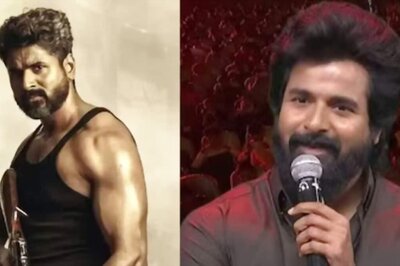
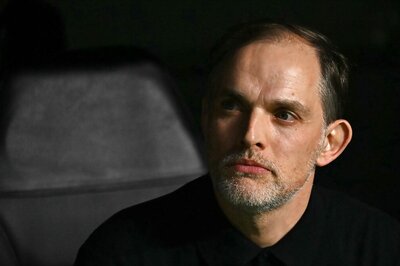

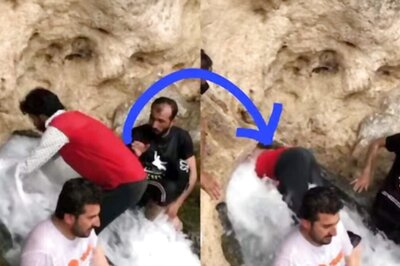
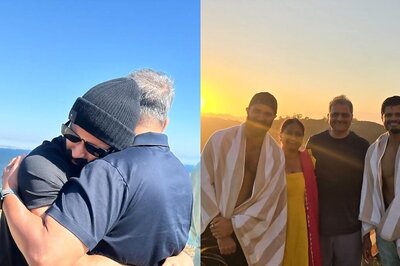

Comments
0 comment